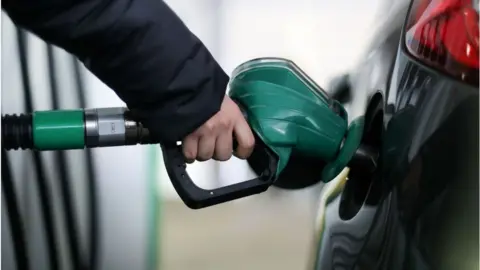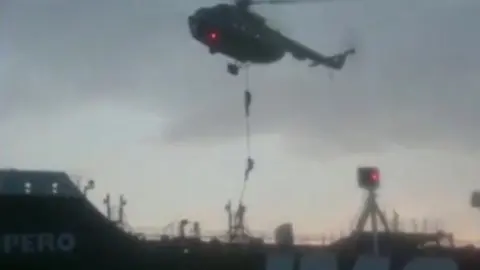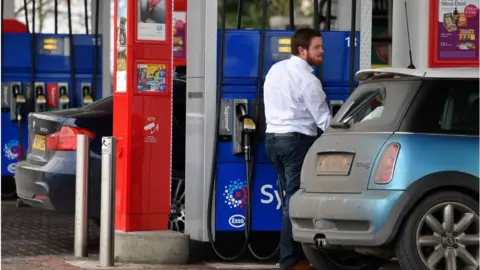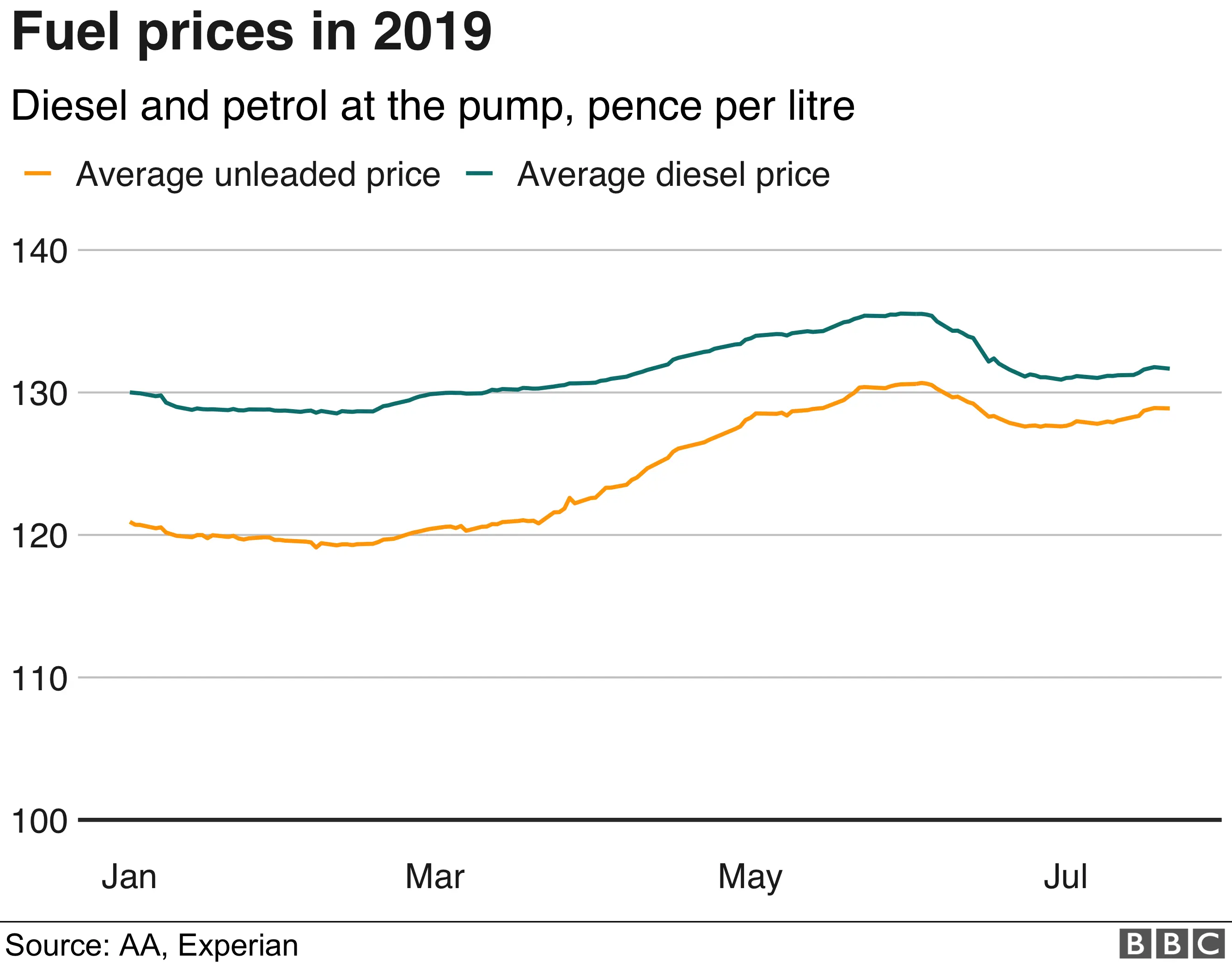Could Iran tensions push up petrol prices?
 Getty Images
Getty ImagesWith tensions rising after Iran seized a British-flagged tanker in the Persian Gulf, oil prices have been volatile, sparking fears a jump in petrol prices could lie ahead.
The AA warned that prolonged uncertainty over the safety of international ships carrying oil through the Strait of Hormuz could keep UK petrol prices at already high levels this summer.
And the UK has warned Iran there could be "serious" diplomatic consequences if it does not release the Stena Impero tanker, suggesting there could be more disruption ahead.
Petrol is made from oil and threats to supply can push up costs for consumers.
How does the Iran situation affect oil prices?
Iran apparently seized the Stena Impero in retaliation for the detention of one of its own tankers by British forces off Gibraltar, but it followed months of tension between the US and Iran who have accused each other of aggressive behaviour in the region.
In that time Tehran has been implicated in attacks on six other oil tankers in the Strait of Hormuz, resulting in a build up of US and UK naval forces in the area.
There are now fears that Iran might try to block the strait, a strategically important shipping route that lies off its south coast, effectively choking off access to the oil-rich Persian Gulf.
That would cut off access to about a fifth of the world's oil and a quarter of its natural gas.
 AFP
AFPMost believe a diplomatic solution is still the most likely outcome. However if Iran did close the strait (which it has not so far threatened to do) it would "drive up oil prices significantly", says David Balston, head of the UK Chamber of Shipping.
"There are oil terminals outside of the Gulf but they are limited so you would have to find markets elsewhere.
"It would significantly push up petrol and gas prices in the UK," he adds, because 5% of the country's oil and 13% of its natural gas passes through the Strait of Hormuz.
And without a diplomatic solution, it would be likely to spark a "military response" from Western allies, he says.
What's going on with oil prices now?
Global oil prices have been volatile in recent weeks because of the tensions, but it's "not been too dramatic", says John Hall, chairman of the Alpha Energy Group consultancy.
A barrel of Brent Crude - considered the international benchmark - stood at about $63.5 on Monday, more than $10 below its 2019 highs.
Mr Hall thinks this is partly because the market - which dictates the price of oil - has tired of "threats and bluster" from US President Donald Trump against Iran that never go any further.
"Until recently, every time Trump tweeted the market moved but investors are becoming immune," Mr Hall says.
Instead investors are looking at the "fundamentals" in the oil market, which aren't very healthy. The Chinese economy is slowing down so demand from the world's second largest consumer of oil could slip.
And attempts by the Organization of the Petroleum Exporting Countries (Opec) such as Saudi Arabia, along with Russia, to prop up prices by cutting output have largely failed because of a vast increase in US production.
"There is a view is there will be too much oil in the market through the rest of this year, which will restrain prices," says Mr Hall.
 Getty Images
Getty ImagesWhat does this all mean for petrol prices?
The AA says that UK fuel prices at the start of the summer getaway, last week, were at their highest level since 2014, at 128.5p a litre for unleaded and 131.7p for diesel.

Luke Bodstadt, the AA's fuel price spokesman, says the tensions with Iran have played a role and that prices are not likely to fall for the next few months.
He is not expecting a big spike unless the dispute seriously escalates, but says a "bigger risk to drivers" would be a further fall in the pound against the dollar.
Oil is sold on international markets in dollars, while sterling has been trading near two-year lows amid heightened chances of a no-deal Brexit.
Alpha Energy Group's Mr Hall says Iran is unlikely to shut the Strait of Hormuz, but if it does we could see a "massive shortage" of oil pushing prices up to perhaps $100 a barrel.
"If it was really serious I think you could expect petrol to go up 20p a litre, that's a conservative estimate," he says.
The more immediate issue is how the UK will respond to the seizure of the Stena tanker, he says. "At the moment there is a serious diplomatic game running between Iran, the US and the UK with Iran deliberately being provocative."
